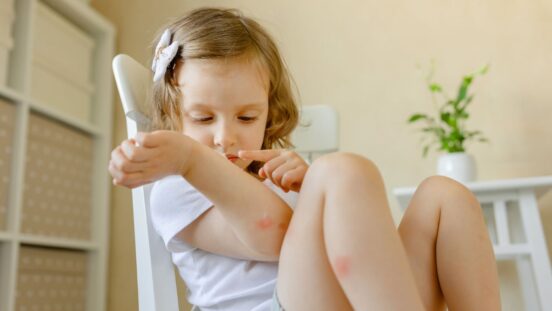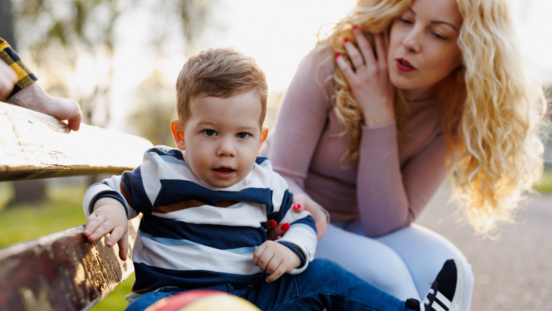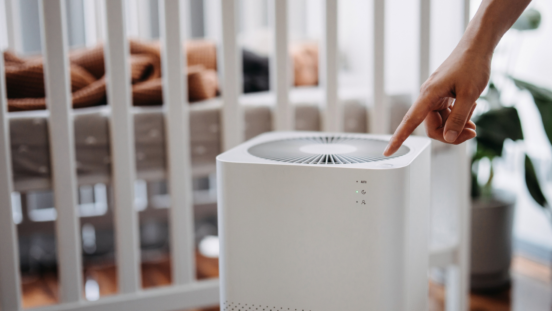Real life: I spent a $100 a week on filtered water baths to help my son’s eczema
“His skin was horrendous and he was so unhappy.”
Emma Read's son, Cooper was almost one when he developed eczema. Within a couple of weeks the eczema spread from the creases of his arms and behind his knees to all over his body.
The discomfort became so bad, the mum-of-two resorted to bathing him in filtered water baths – costing more than $100 a week, at $18 per bath.
"His skin was horrendous and he was so unhappy. It was painful and itchy and he would be scratching all day and night," explains Emma.
"We went to the doctor and got some cortisone cream and that helped but we didn't know what was causing it. The GP thought perhaps it was his diet and to go gluten free. But he had always had a great diet and mother's instinct told me that wasn't right."

Cooper's eczema was painful and itchy but he found relief in baths of filtered water.

Within a couple of weeks, the eczema spread over one-year-old Cooper's body.
Emma thought environmental irritants seemed to make his skin even worse and so she started filling Cooper's bath with filtered 10L water containers, which she boiled up first.
"We had recently moved to a regional area where there was spring water, which holds more elements. I thought I would start buying the big 10L water boxes. They were about $9 each and I'd use two to fill a bath so it was expensive but the price didn't matter as it made a huge difference and his skin cleared up. We ended up buying a filter for the house to take out the impurities in the water."
Emma also introduced a natural cream for skin issues such as eczema, acne and psoriasis.
"After his bath we'd lather him up in MooGoo Eczema and Psoriasis Cream, which instantly soothes his skin. I put the cream on morning and night. Cooper's now 18 months old and so happy."

The baths of filtered water made a difference and Cooper's skin cleared up.
Australian researchers in Melbourne are currently investigating the role soap and detergent play in kickstarting the progression to developing common allergic diseases and are piloting a trial to test whether ditching the soap when bathing babies can stop a related immune reaction to foods such as eggs, nuts and dairy.

Emma with her happy boy, Cooper who is now 18-months-old.
Australia has one of highest rates of allergies in the world, and according to research from the Murdoch Children's Research Institute, the highest published rates of food allergy in children.
An estimated 10 to 20 percent of children have eczema. About 60 percent of those with eczema will experience symptoms by ageone, and another 30 percent by age five.




